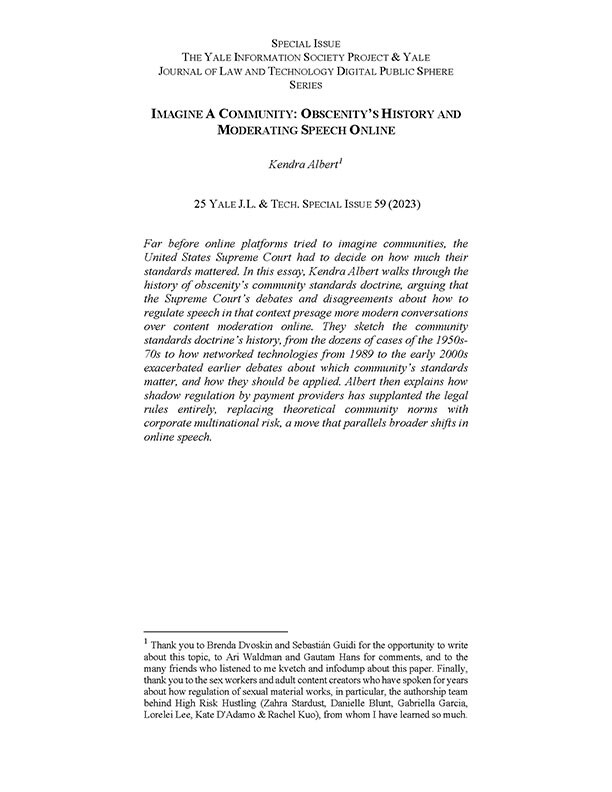By Kendra Albert
Kendra Albert walks through the history of the “community” in obscenity’s community standards doctrine, arguing that the Supreme Court’s debates and disagreements about how to regulate speech in that context presage more modern debates over content moderation online. They begin by sketching the community standards doctrine’s history, from the dozens of cases of the 1950s-70s to how networked technologies from 1989 to the early 2000s exacerbated earlier debates about which community’s standards matter, and how they should be applied. Albert then turns to what happened when the Justice Department ended prosecutions of pornography producers for obscenity, and how the shadow regulation of payment providers has come to replace the (flawed) legal doctrine.


